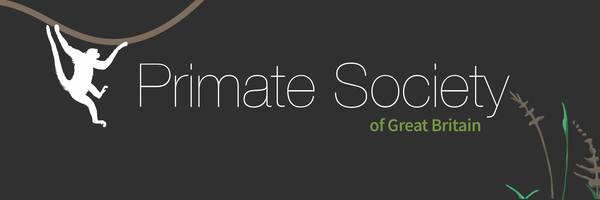CONSERVATION GRANTEES 2025
Julius Kizito
Community members' attitudes towards, perceptions, and conservation education of Chlorocebus pygerythrus (LC) in Kalangala district (Ssese Islands), Uganda.
Vervet monkeys (Chlorocebus pygerythrus), although categorized as Least Concern on the IUCN Red List, are the only extant primate species in the Ssese Islands. They are found on 28 of 84 Kalangala district Ssese Islands. Habitat loss due to the expansion of oil palm plantations and a switch from fishing to agriculture increased negative human-vervet interactions, including misuse of pesticides and threats of hunting. These create a challenge to the long-term survival of the vervets. We will assess the attitudes and perceptions of community members, from 135 households in 9 villages on Buggala Island, towards vervet monkeys. These villages are close to protected forest and have reported high levels of crop-foraging by vervets. We will then conduct 20 conservation education trainings targeting 300 participants to improve community engagement in conservation and coexistence with vervet monkeys. The conservation education material will also have a component on the pesticide use health-related risks to both humans and animals and their impact on ecosystem biodiversity and explore environmentally friendly techniques to reduce crop foraging.

Photo shared with permission.
Jingyu Chen
Supporting community-based conservation for the Hainan Gibbon through a social-ecological perspective
The Hainan gibbon (Nomascus hainanus) is the world’s rarest ape and one of the rarest mammals, with a population of c. 37 individuals restricted to 15 km² in Hainan Tropical Rainforest National Park (HTRNP), Hainan Island. It is IUCN Red-listed as Critically Endangered. In recent years, new gibbon groups have formed in secondary forests adjacent to human settlements, where local communities engage in agroforestry practices, leading to potential human-wildlife conflict. Major gaps remain in understanding the fine-scale relationships between low-income local communities, Hainan gibbons, and other native wildlife. Limited local engagement, the absence of conservation NGOs, and a disconnect between researchers and local communities hinder conservation efforts. Drawing from a successful Lisu women-led gibbon conservation project in Yunnan, this study examines and works with Li and Miao communities near HTRNP to understand human-gibbon interactions, explore community-based conservation, and assess the transferability of conservation models. Our experience advocates for interdisciplinary approaches to empower local communities and shift top-down, male-dominated HTRNP management paradigms.
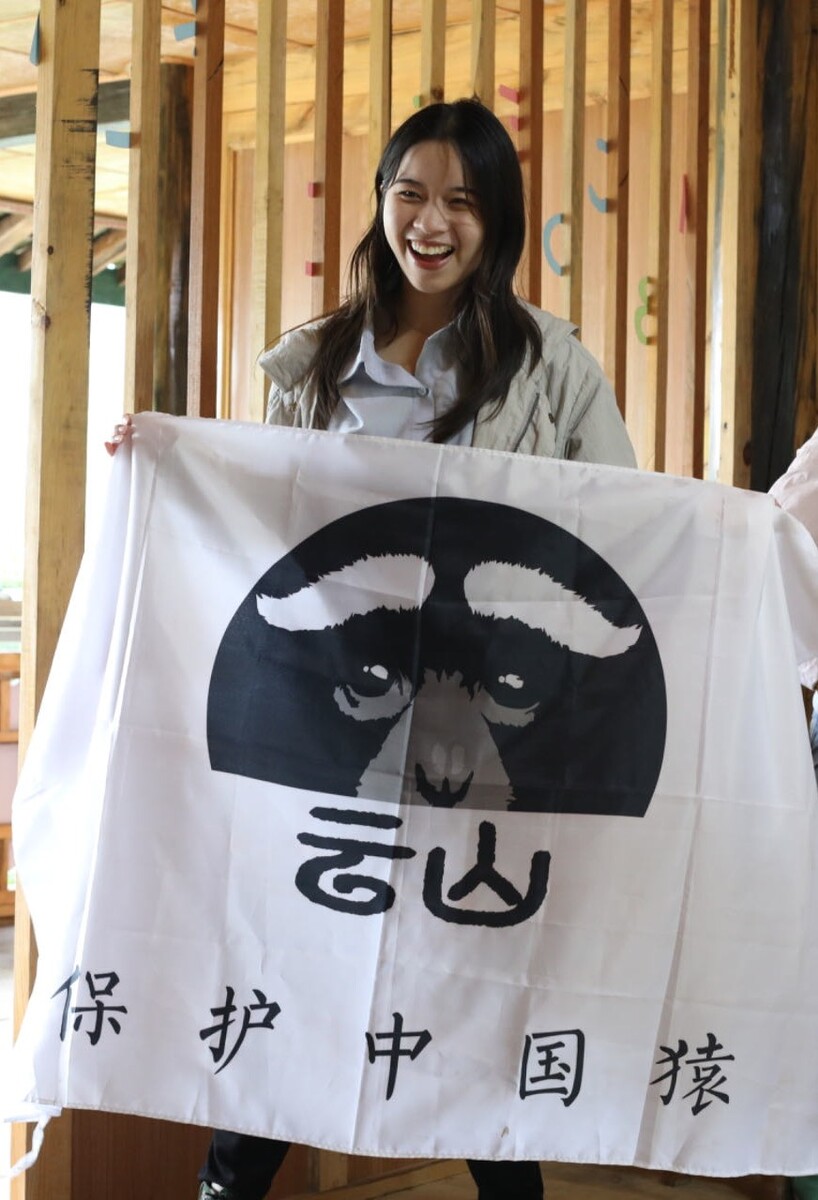
Photo shared with permission.
Jesús Martinez
Advancing the consolidation of primatology in Bolivia
Bolivia is home to 23 monkey species that are facing severe habitat loss due to deforestation and land use change. Of the 23 taxa, 8 have been nationally evaluated as Vulnerable, two as Endangered, and two as Critically Endangered (6 are not yet evaluated). The Bolivian Primatology Network (RedBolPrim) aims to consolidate this discipline by promoting primate research and conservation for all Bolivian primate populations. RedBolPrim will organize a symposium focused on the current state of primatology in Bolivia at the Xth Bolivian Congress of Mammalogy (July 2025). We will also organize a round table to outline the highest priority actions to be carried out for the conservation of primates in Bolivia. The results will be used in a series of workshops to construct a national Conservation Action Plan for Bolivian primates. The participation of indigenous people is crucial for these strategic workshops. Together these initiatives aim to lay the groundwork for long-term primate and forest conservation in Bolivia.
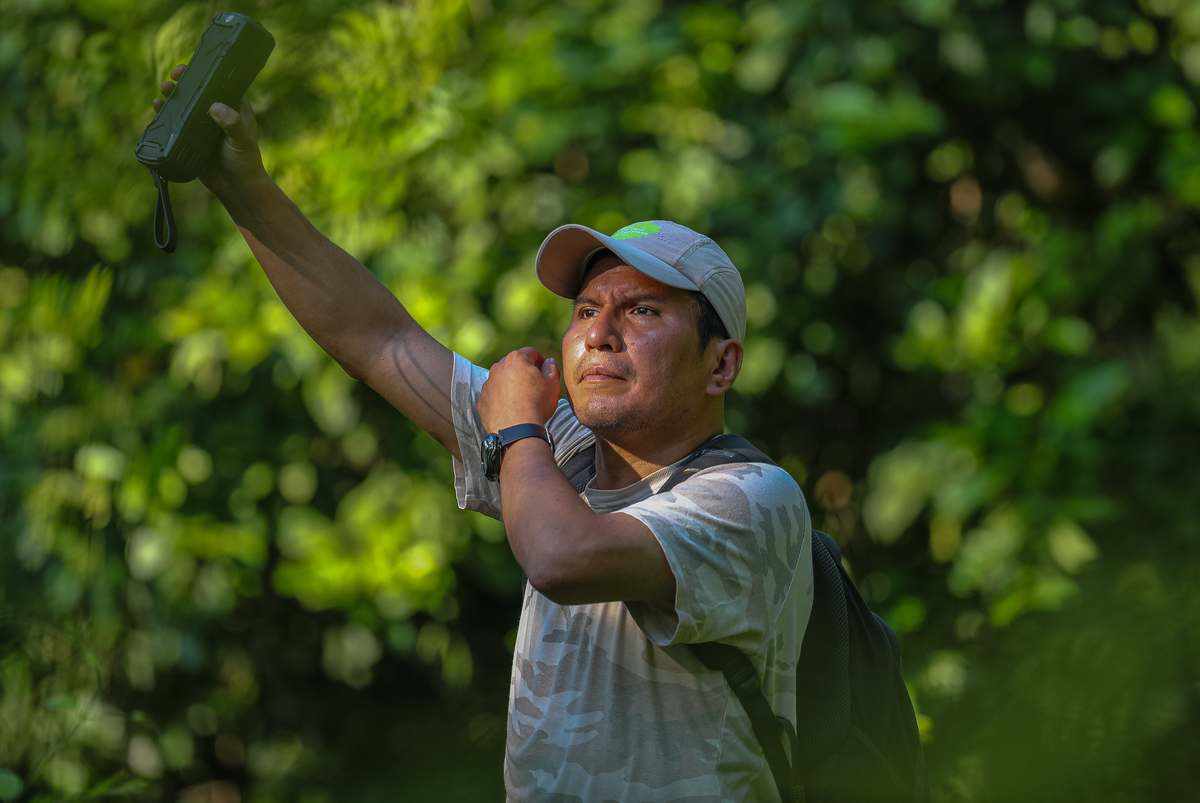
Photo shared with permission.
Ejigu Worku
Human–grivet monkey (Chlorocebus aethiops) conflict and coexistence in the sacred landscapes of the Zegie Peninsula, Ethiopia
Human–wildlife conflict is inevitable as human populations expand, yet integrated, community-based strategies can substantially reduce its impact and foster coexistence. This project investigates human - grivet monkey (Chlorocebus aethiops) conflict in the Zegie Peninsula, northwestern Ethiopia. While C. aethiops populations appear to be increasing, this is accompanied by rising human–monkey conflict, including crop-raiding, predation on poultry and eggs, and theft of food items from homesteads and markets. In response, residents frequently chase and kill monkeys to protect their livelihoods. The main constraints on grivet population stability therefore include persistent conflict with humans, weak conservation awareness, and the absence of sustained monitoring and management programs. This study aims to 1) explore the extent and spatial patterns of conflict; 2) identify the cultural and spiritual values and attitudes that shape community perceptions of grivet monkeys; 3) assess effectiveness of existing conflict-mitigation strategies, focusing on their social acceptability and practical feasibility; and 4) identify conflict hotspots and develop culturally grounded, sustainable and participatory solutions that minimise human-grivet conflict and strengthen long-term primate conservation.
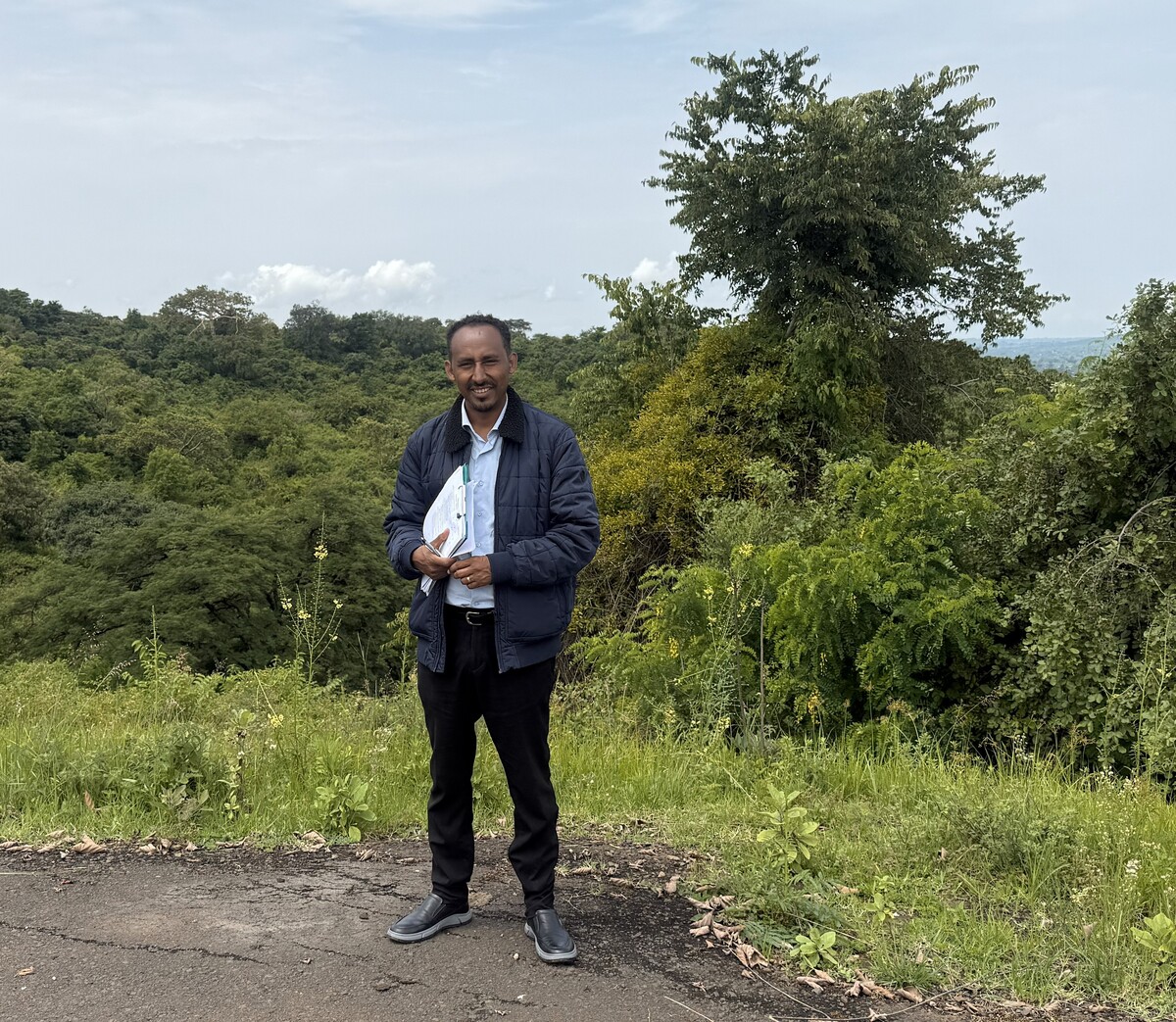
Photo shared with permission.
Joel Correa
Testing behaviourally informed deterrents to reduce food provisioning pressure on Lion tailed Macaques (Macaca silenus) and sympatric primates in Agumbe, Central Western Ghats, Karnataka, India
Agumbe Ghat in the Central Western Ghats, India, represents a critical habitat for the IUCN red-listed endangered Lion-tailed Macaque (Macaca silenus) as well as sympatric Bonnet Macaques (Macaca radiata) - VU) and black-footed gray langurs (Semnopitheuc hypoleucus – LC), which are increasingly impacted by human provisioning along National Highway 169A. Frequent feeding by tourists and motorists has reinforced unnatural roadside congregations, elevating risks of primate-vehicle collisions and altering behaviour. This proposed study focuses on deterring human provisioning as a key leverage point for conservation action. We aim 1) to design and install low-cost, behaviourally informed deterrents such as visual cues, reflective markers, and mannequins at key provisioning hotspots along NH 169A in Agumbe Ghat.; 2) to assess the effectiveness of these deterrents in reducing the frequency and duration of human food provisioning events.; 3) to document short-term behavioural responses of primates and tourists to deterrent installations; and 4) to generate baseline data and locally adaptable strategies for mitigating provisioning driven disturbances in endangered primate habitats.
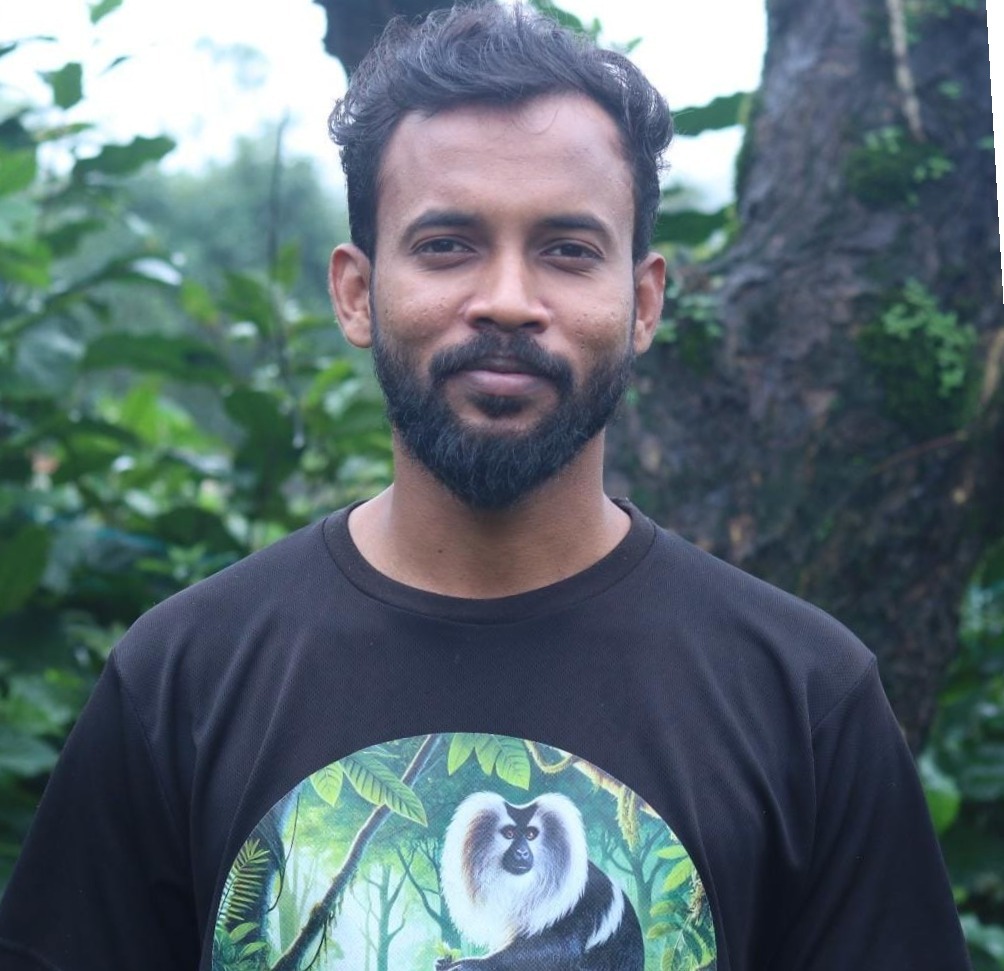
Photo shared with permission.
CAPTIVE CARE GRANTEES 2025
María José Jaramillo Castaño
Genetic inference of lineages and geographic origin of trafficked individuals of the genera Cebus and Aotus and their integration into a rehabilitation and release protocol.
In Colombia, white-fronted capuchins (Cebus) and owl monkeys (Aotus) are among the most frequently trafficked primates, and many of these species are currently classified as threatened. Confiscated monkeys are taken to wildlife centres for rehabilitation. However, reintegration is challenging due to their complex taxonomy, high phenotypic variability, lack of reliable traits, and the presence of sympatric zones. Consequently, captive groups often become heterogeneous, comprising individuals from different species and biogeographic origins. To prevent hybridization, sterilization or sex separation is often employed; however, these measures negatively impact ethological assessments and animal welfare. These limitations have led to many trafficked individuals remaining in wildlife centres for over a decade.
With support from the Primate Society of Great Britain’s Captive Care Grant, this project uses mitochondrial DNA analysis of the COXI and Cytb genes to assign over 85 confiscated Cebus and Aotus individuals to their evolutionary lineages and infer their most likely geographic origins. These genetic findings will be integrated into a comprehensive, multidisciplinary release protocol combining molecular identification with veterinary assessment and behavioral evaluation.
The resulting framework aims to improve the welfare and conservation outcomes of trafficked individuals by guiding species-appropriate social group formation and ensuring releases occur within genetically compatible areas. This work represents the first systematized genetic protocol for the post-confiscation management of Cebus and Aotus in Colombia. It underscores the significance of conservation genetics in decision-making processes for wildlife rehabilitation and reintroduction.
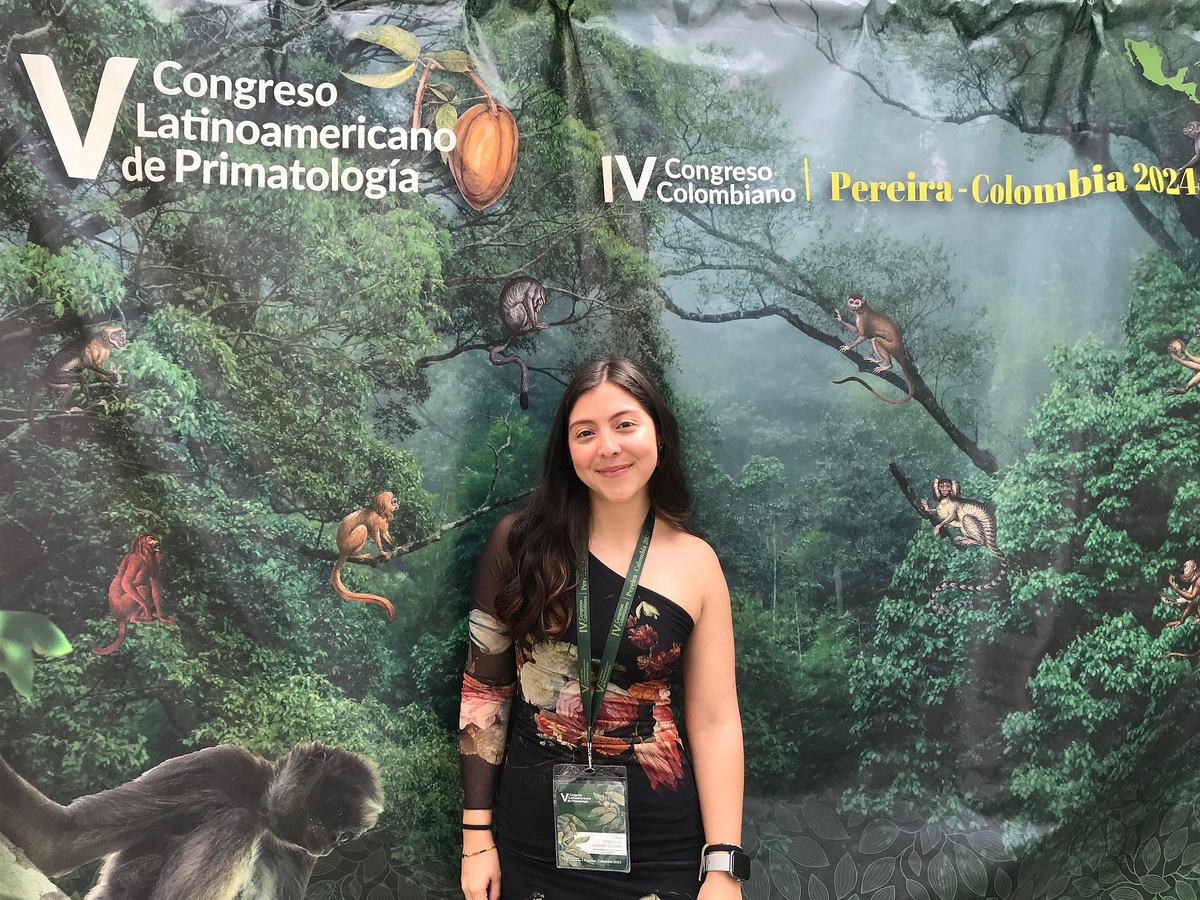
Photo shared with permission.
RESEARCH GRANTEES 2025
Karshita Bharati
Parasite Networks in Nonhuman primate Communities in the Lowland Rainforest Fragments of the Upper Brahmaputra Valley, Assam, India
The forests of the Upper Brahmaputra Valley (UBV) in Assam state of northeastern India harbour rich nonhuman primate diversity, being home to seven primate species. These rainforests have, however, been degrading steadily and are now highly fragmented, threatening the future survival of its primate populations. Habitat loss and fragmentation not only impact the survival of these populations but could potentially lead to a cascade of changes, impacting the susceptibility of these populations and individuals to various survival pressures, including parasite loads and infection risks. There has been virtually no work on parasites and potential infectious disease transmission in wild nonhuman primate species in these fragmented forest patches of northeastern India. This pioneering study thus proposes to build a comprehensive understanding of parasite prevalence and diversity amongst the threatened nonhuman primate populations of the UBV, a critical step in formulating appropriate conservation and management strategies for the primates of the region.
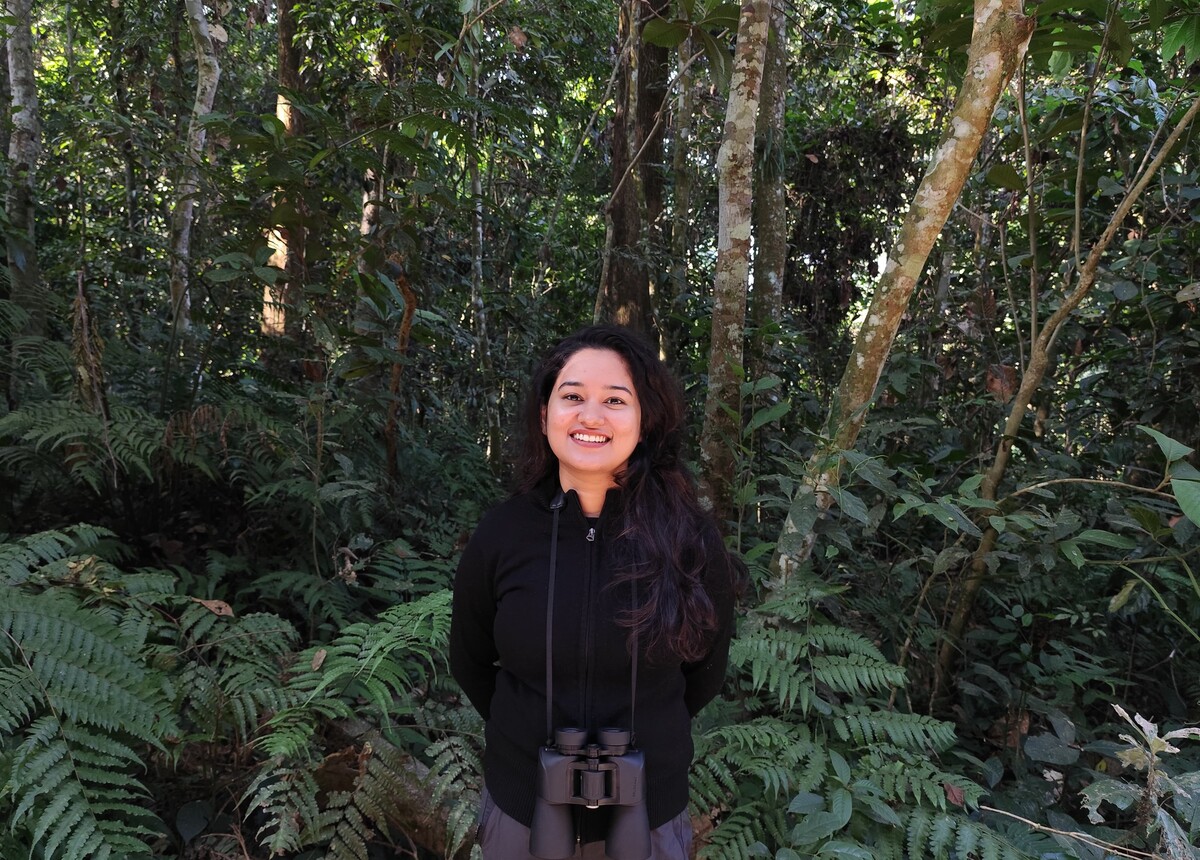
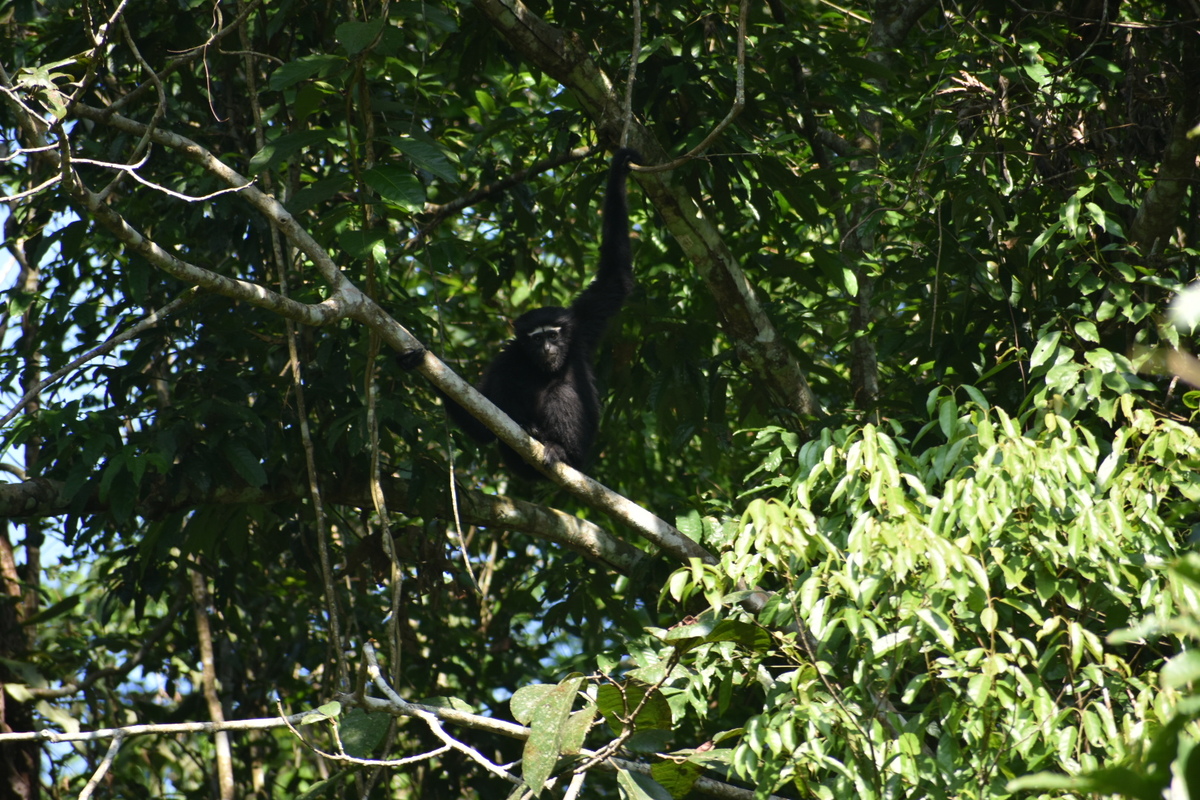
Photos shared with permission.
Ana Rita Bárrio Machado Franco Santos
Survey of zoonotic pathogens in the central chimpanzee (Pan troglodytes troglodytes) and western lowland gorilla (Gorilla gorilla gorilla), in Mayombe National Park, Angola
The Mayombe forest is located in the southwestern margin of the Congo Basin, between the Democratic Republic of Congo, Angola, Congo, and Gabon, and is part of the second-largest world’s equatorial rainforest. In Cabinda, Angola, the Mayombe National Park (MNP) was licensed in 2011, covering an area of 193,000 hectares, representing part of the Guineo-Congolian rainforest biome. Decades of war have hampered field studies of the Angolan biodiversity, resulting in limited information about the population of the terrestrial fauna. The MNP provides habitat for the central chimpanzee (Pan troglodytes troglodytes) and the western lowland gorilla (Gorilla gorilla gorilla), classified as endangered and critically endangered species, respectively, by the International Union for Conservation of Nature and Natural Resources (IUCN), with no available data regarding the population and health statuses of the great apes in Cabinda. This research is part of a larger multidisciplinary project that aims to identify, locate, and study the populations of central chimpanzees and western lowland gorillas in the MNP. The goal is to monitor the health status of the great apes of the MNP, in Cabinda, particularly focusing on zoonotic diseases with public health importance, epidemiology, and main drivers.
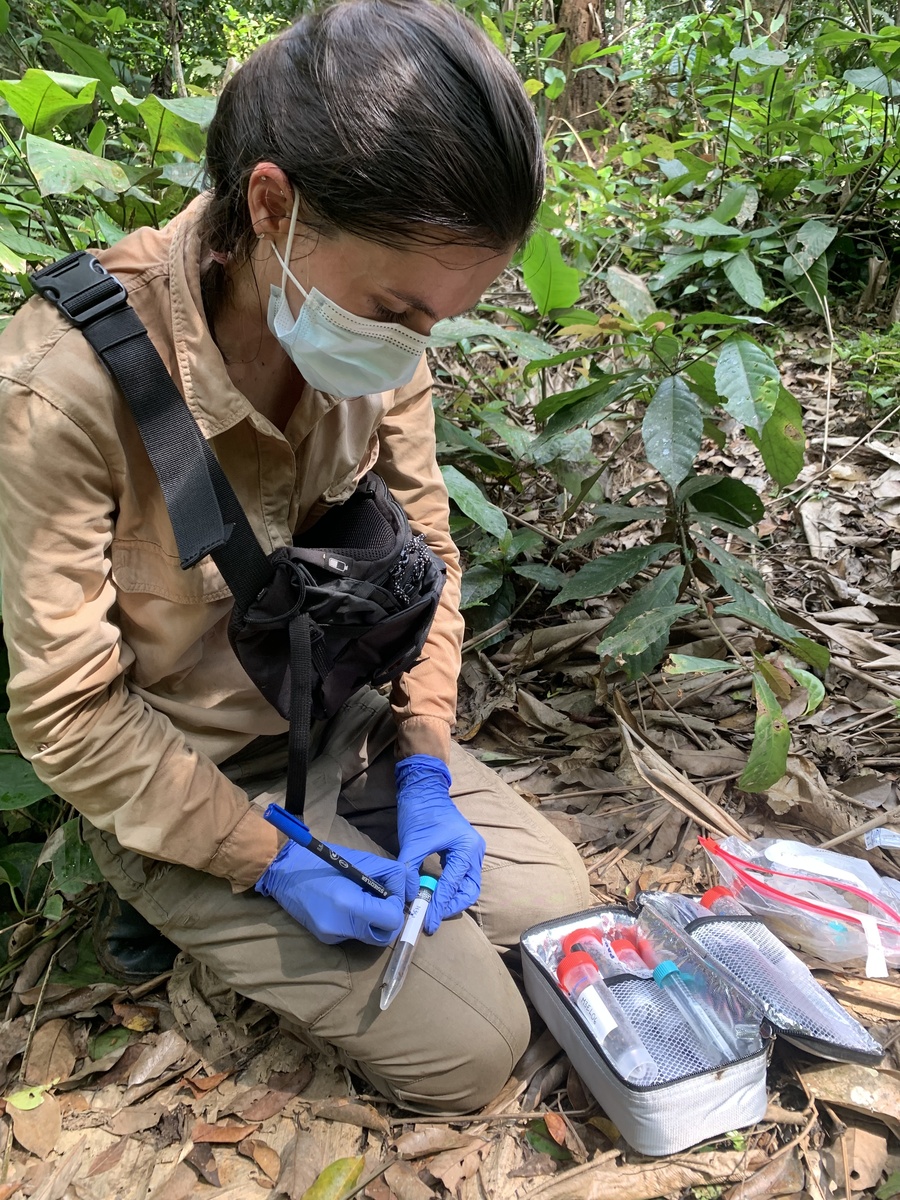
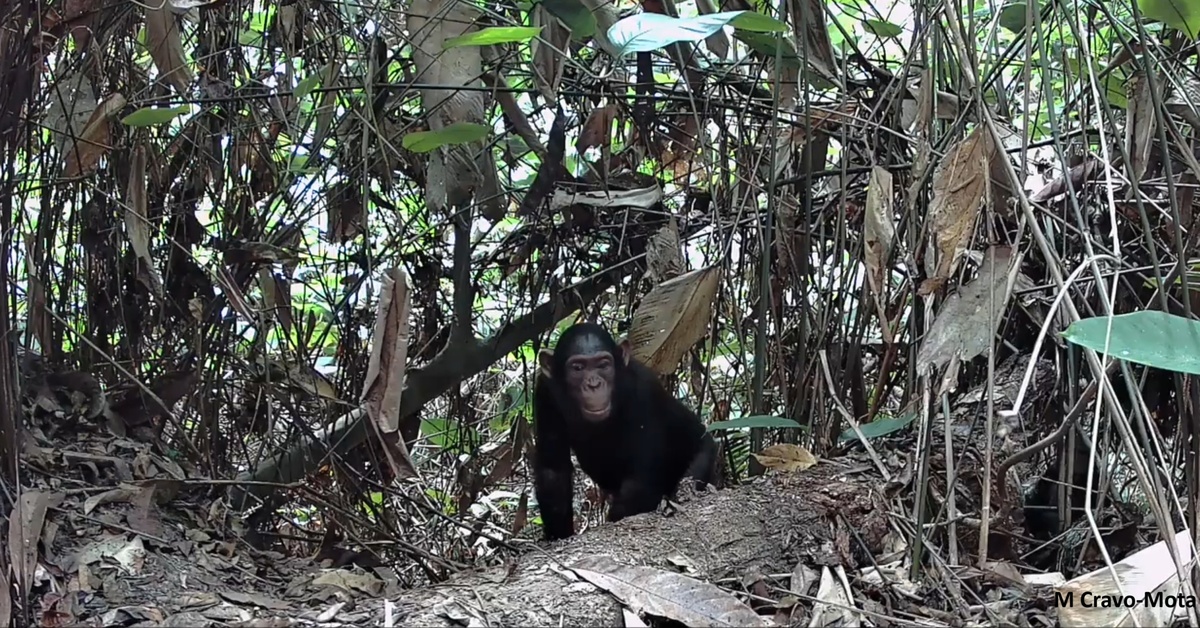
Photos shared with permission.
Matthew Gardiner
Assessing how maternal style, and environmental stressors shape the social competence of Barbary macaques (Macaca sylvanus) during ontogeny.
This project investigates how mothers and social experience shape cognitive phenotypes in Barbary macaques (Macaca sylvanus). While genetic factors influence the development of key traits, including social cognition, socioenvironmental contexts are expected to also be drivers of trait variation, particularly in primates due to their prolonged ontogeny relative to. We will explore how maternal stress and the socioecological landscape influence caregiving patterns, and in turn variation social competence in young macaques. Barbary macaques are ideal for this study due to their complex social structures and reliance on relationships for survival. Unusually among non-human primates, unrelated male Barbary macaques engage in infant care, displaying all caregiving behaviours except lactation. At our study site, groups experience varying levels of human exposure and resource availability, creating stress gradients that may influence caregiving and young macaques' developmental patterns. This study provides insights into social cognition development in a species with an alloparenting structure relevant to understanding human cooperative breeding patterns.

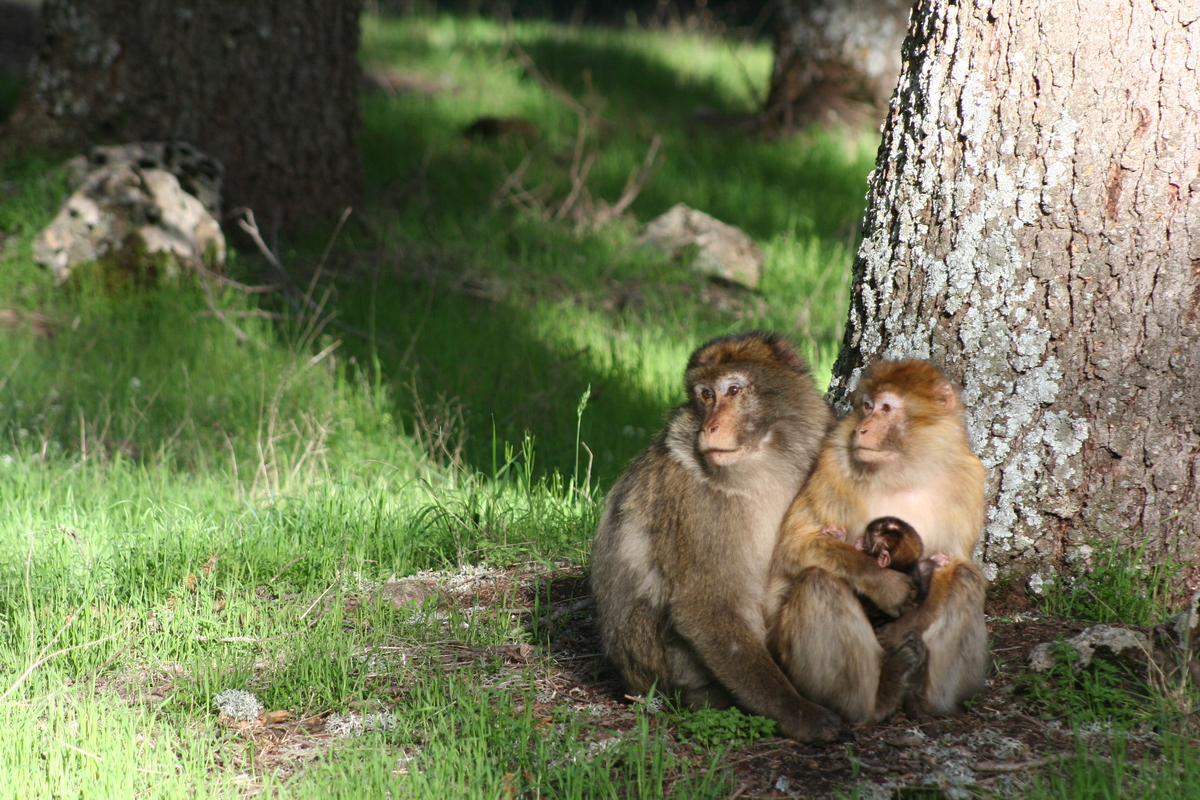
Photos shared with permission.
